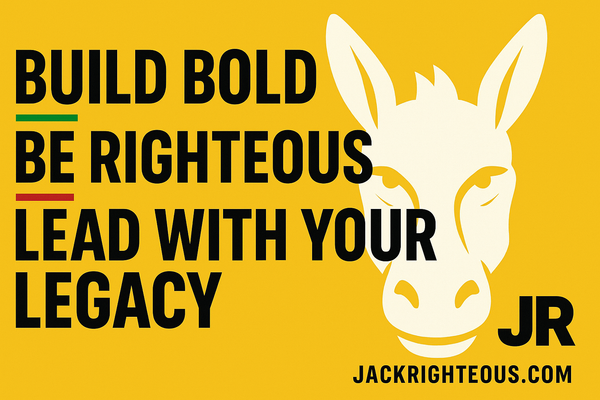
Why I Stopped Using DistroKid's Wheel of Playlist
Gary Whittaker
Why I No Longer Recommend DistroKid’s Wheel of Playlist
The Risk Behind the Hype for AI Music Creators
Note: This article was updated on June 8, 2025, to reflect new insights and a change in recommendation based on real-world experience with DistroKid’s Wheel of Playlist.
If you’re an independent artist—especially one exploring AI music—organic promotion is a challenge. One tool that initially seemed promising to me was DistroKid’s Wheel of Playlist, a free feature designed to help artists gain visibility via curated Spotify playlists. After months of testing it daily, I can no longer recommend this tool in good faith.
This article explains:
• What the Wheel of Playlist is
• How DistroKid promotes it
• What actually happened in my case
• Why it may hurt more than help in the long term
What Is the Wheel of Playlist?
The Wheel of Playlist is a promotional feature offered by DistroKid. It’s free and marketed as a way to boost your song's visibility through random playlist placement. Here's how it works:
• Choose a song from your DistroKid uploads
• Connect to Spotify to authorize access
• Spin the virtual wheel — you get three chances per song
• Your highest number determines your playlist spot
• Stay on the playlist until someone spins and lands on the same spot
• Re-spin to rejoin once you're bumped off
This tool is:
• Free and easy to use
• Designed to be "fun," not guaranteed promotion
• Based entirely on luck, not quality or metrics
My Early Experience
At first, I used the Wheel inconsistently. Even when I got high placements, it didn’t make much of a difference. Later, I tried a more focused approach using my AI-generated track Fork Inna Di Road. Here’s what I did:
• Used the Wheel every day
• Re-spun immediately when bumped
• Focused on only one song instead of rotating between tracks
The Result:
• Over 400 plays on a single song
• 300+ new Spotify followers
• Playlist adds to DistroKid-curated lists like New & Fresh, Rising Stars, and New Heat
At first, it felt like the strategy was working.
What Went Wrong
After a few weeks, I saw the consequences of relying on this tool too heavily—none of which were mentioned in DistroKid’s promotional messaging.
1. False Hope from Hollow Followers
Yes, I gained over 300 Spotify followers. But none of them engaged with future releases:
• No additional plays
• No song saves
• No playlist adds
• No shares or feedback
These "followers" appear to be bots or inactive accounts, offering no real benefit.
2. Inflated Stats That Hurt Long-Term Growth
Several of my songs—each promoted using the Wheel—gained over 2,000 streams. Normally, that would be enough to qualify for payouts.
But Spotify removed the plays entirely.
Once they flagged the traffic as non-organic, they:
• Removed my songs from playlists
• Zeroed out the stream counts
• Revoked all projected royalties
This happened to 3–4 different tracks, each one actively pushed using the Wheel.
3. Risk of Long-Term Platform Penalties
When your account shows artificial growth without real listener engagement, Spotify's systems take note:
• Your tracks may be suppressed in future recommendations
• Algorithmic visibility drops
• Spotify could flag or review your entire account
This puts your real future releases at risk, even if they’re totally clean.
What DistroKid Actually Says
DistroKid’s disclaimer frames the Wheel as a light-hearted, optional tool. Their own words:
“This is a fun promotional tool. It’s not meant to be a guarantee of streams or revenue.”
That’s fair on the surface—but it ignores the real consequences of how the tool is used by independent artists looking for traction.
The interface, reminders, and placement rewards strongly encourage daily use and offer no real warnings about the risks of inflated traffic or Spotify penalties.
Final Verdict: Don’t Use the Wheel of Playlist for Growth
I do not recommend this tool anymore.
Even though it’s free and accessible, it creates a cycle of:
• False signals
• Empty engagement
• Lost royalties
• Damaged Spotify performance
Better Alternatives
If you’re using DistroKid, I still recommend it for basic distribution. But skip the Wheel and focus on tools that actually help:
• Use Spotify for Artists to pitch your music directly
• Focus on real audience building via email lists, BandLab, or Submithub
• Spend your time improving your sound, mixing, and presentation
The truth is simple: no tool can replace real fans and listener connection. That’s where your long-term growth lives.
Final Thoughts
DistroKid’s Wheel of Playlist feels like a shortcut, but in practice, it’s a trap. If you're serious about music—especially AI-driven music—don't rely on inflated stats. They’ll only slow you down.
Stay consistent. Keep improving. And only use tools that grow with you, not just your numbers.
If you’ve used the Wheel or had a similar experience, feel free to share your story or contact me here.
